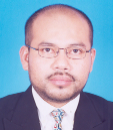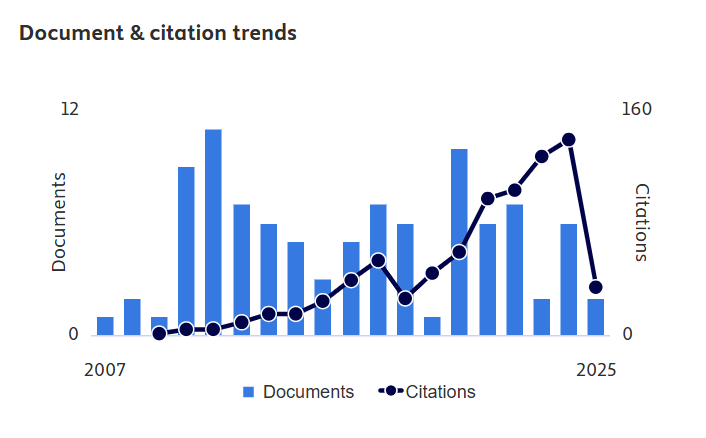After enrolling for three semesters at DCC, he transferred to Syracuse University (SU), Syracuse, New York, in Fall Semester 1986 majoring in Electrical Engineering. He graduated from SU with a Bachelor of Science in Electrical Engineering in December 1988. The candidate completed his Master of Science in Communication Networks and Software from Surrey University (UniS), Guildford, England, from September 2000 to September 2001.
Dr. Mohd Zuki obtained his Doctor of Philosophy (Ph.D.) Degree in Electrical & Electronic Engineering from Universiti Teknologi PETRONAS (UTP), Tronoh, Perak, Malaysia, in February 2010. His area of PhD study was on brain signal processing.
Dr. Mohd Zuki is currently an associate professor at UTP and is the Core Member of Centre for Intelligent Signal and Imaging Research (CISIR). He is currently undertaking research in brain signal processing (event related potentials; human computer interaction; brain computer interface). He holds one patent related to the extraction of event related potentials from background EEG. He is a member of the following learned societies and professional body: IEEE, Tau Beta Pi-the National Engineering Honorary Society (lifetime member), Eta Kappa Nu-the Electrical and Computer Engineering Honorary Society (lifetime member), and Board of Engineers Malaysia and Institution of Engineer's Malaysia (as graduate engineer).
Dr. Mohd Zuki has accumulated about 6 years of experience working with various industries, and over 30 years in academic/training institutions. These include Universiti Teknologi PETRONAS (UTP), Celcom Academy, Politeknik Sultan Abdul Halim Mu'adzam Shah (POLIMAS), Malaysian Institute of Microelectronic Systems (MIMOS), and Singatronics (M) Sdn Bhd. He is a certified Curriculum Designer & Developer, awarded by Sepang Institute of Technology (SIT) and Douglas Mawson Institute of TAFE in March 1999.
For the last twenty-five years, he has been involved in teaching digital logic design, assembly language (Zilog Z80, Intel 8080/8085/8086/8088/ 8051, Motorola 6800/6809/68000, Microchip microcontrollers, ARM Cortex M0, M0+, M3, and M4 machines) and C programming, advanced embedded systems, microprocessor, microcontroller, analog communications, and digital communication courses while at UTP. In recent initiatives, he has been engaged in transforming the curricula of the mentioned courses into outcome-based education (OBE) compliant subjects.
While at Celcom Academy (CA), he also trained technicians and engineers in telecommunications related areas such as Telecommunications Principles, Introduction to ETACS, Common Channel Signalling No. 7 (CCS7), Siemens' EWSD Switching System; Integrated Services Digital Network (ISDN), Siemens' EWSD exchange planning, and Siemens' EWSD Operation, Administration and Maintenance (OAM). At CA, he was involved in developing Learner and Facilitator Guide modeled on Competency Based Training & Education (CBTE), to support classroom training. He also worked with Deutsche Telekom staff to produce training materials for CA's Technician Training Program (TTP). He was in charge of evaluating training effectiveness and was involved in continuous improvements of training modules offered by CA. Furthermore, Dr. Mohd Zuki assisted in coaching line trainers (comprising mainly engineers) on course developments based on the CBTE approach.
In the past (while at POLIMAS), he conducted training in Audio Communications for Thomson Audio Kulim, Kedah, and in Audio Electronics for Sharp Roxy Corporation, Sungai Petani, Kedah. These two courses led the participants comprising mostly assembly line operators to qualify for certification (issued by POLIMAS) in their respective courses; they were eventually promoted to technicians in their workplaces.
Dr. Mohd Zuki believes in a continuous process of learning. His motto in learning is from "womb to tomb". He also embraces that learning processes can actually be made simpler if proper techniques are utilized in the delivery phases. Realizing that some technical contents are somewhat difficult, he always finds analogies that he can use to impart knowledge and skills to his audience so that the intended objectives of learning can be obtained. He subscribes to the idea that "one can actually philosophize on certain knowledge once one knows the ins and outs of the subject matter" this will greatly simplify some difficult concepts which seem too difficult to grasp, making the whole learning experience enjoyable.

